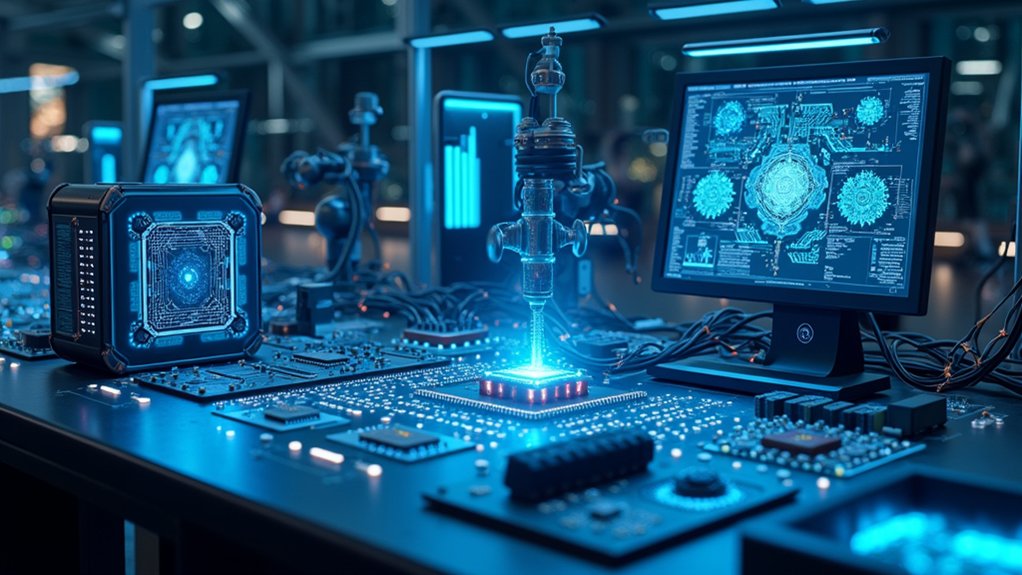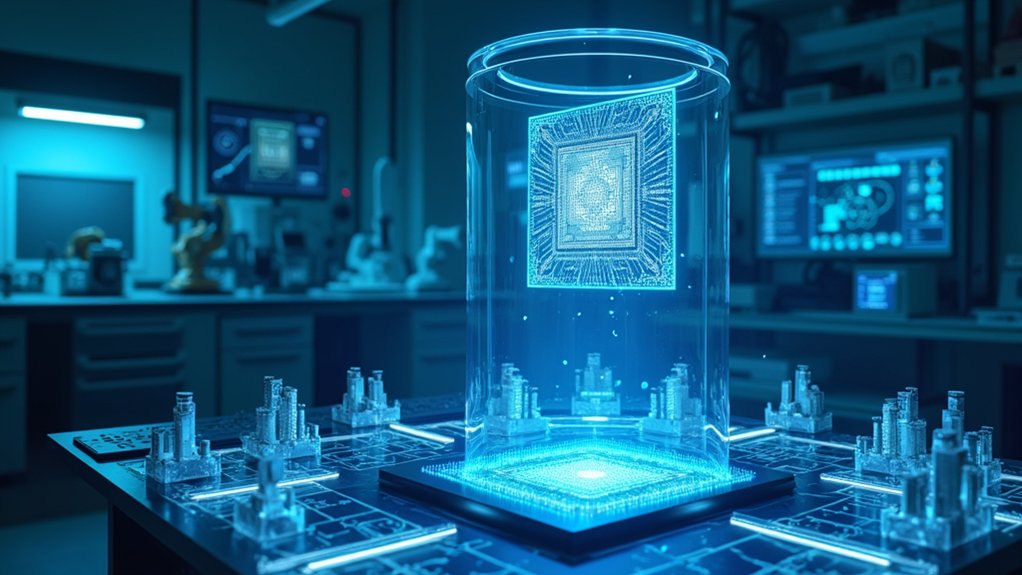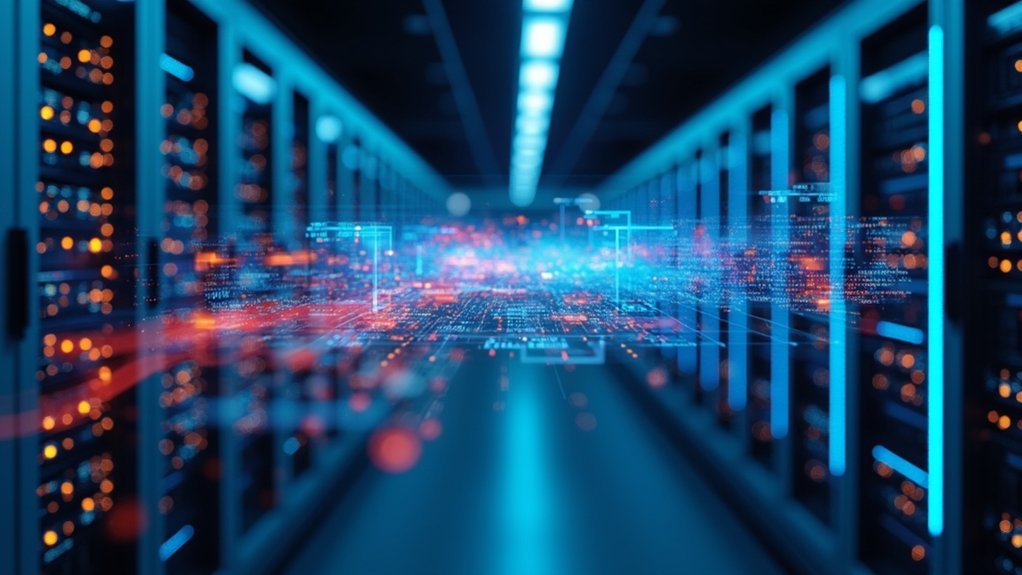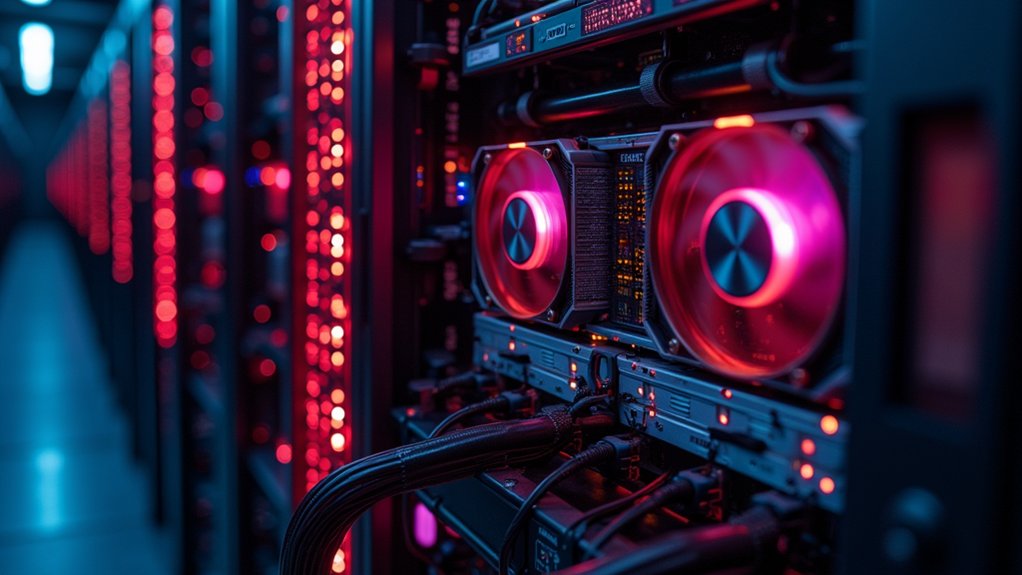The next wave after AI includes quantum computing, artificial general intelligence (AGI), precision medicine, and neuromorphic computing. Quantum systems will process data at unprecedented speeds, while AGI aims to mimic human cognitive abilities across domains. Biotechnology advances are creating personalized treatments that transform healthcare. Meanwhile, neuromorphic computing devices imitate brain functioning. These technologies aren't just extensions of AI—they represent entirely new technological paradigms that will reshape our future.

While artificial intelligence dominates today's tech headlines, several emerging technologies are poised to transform our world even further. Experts are already looking beyond AI to the next wave of innovations that will reshape industries and daily life.
Quantum computing stands at the forefront of this technological evolution. These advanced systems process data at speeds unimaginable with today's computers. By 2030, the quantum computing market is expected to reach $5.3 billion, driving breakthroughs in drug discovery, cryptography, and solving complex problems classical computers can't handle.
Quantum systems will unlock solutions to problems beyond classical computing's reach, revolutionizing multiple industries by 2030.
Artificial General Intelligence (AGI) represents the next milestone after today's narrow AI systems. AGI aims to replicate human cognitive abilities, performing any intellectual task a human can do. Unlike current AI that excels at specific tasks, AGI would demonstrate broad intelligence across domains.
Biotechnology and precision medicine are transforming healthcare through personalized treatments. Technologies like CRISPR-cas9 may help eradicate diseases by editing genetic code. Combined with big data processing, these advances are revolutionizing how doctors diagnose and treat patients. These personalized approaches are designed to maximize treatment effectiveness while minimizing side effects for each individual patient.
Neuromorphic computing mimics the human brain's functioning. Growing at over 70% annually, this technology enhances robotics and autonomous vehicles by creating more efficient, adaptable computing systems. These brain-inspired computers process information more like humans do than traditional machines. Modern AI models with enhanced reasoning capabilities are already laying groundwork for these neuromorphic systems.
Advanced robotics continues to evolve, creating machines that work autonomously in manufacturing, healthcare, and homes. These robots use AI and machine learning to adapt to new situations and perform precision tasks with minimal human oversight.
Edge computing processes data near its source rather than sending it to distant data centers. This reduces lag time, making it essential for real-time applications like autonomous vehicles and industrial systems.
Cybersecurity advancements use AI to detect and respond to threats automatically. These systems analyze vast amounts of data to spot unusual patterns and predict potential attacks before they happen.
As AI becomes mainstream, these technologies represent the next frontier of innovation that will build upon and extend beyond today's artificial intelligence capabilities. Professionals looking to stay ahead should consider joining professional organizations that provide valuable insights into emerging technology trends and networking opportunities with industry leaders.
Frequently Asked Questions
Will AI Replace All Human Jobs Eventually?
Experts don't believe AI will replace all human jobs.
While AI could displace 300 million jobs by 2030, it's unlikely to eliminate positions requiring emotional intelligence, creativity, and complex decision-making.
Healthcare professionals, teachers, and skilled trades will likely remain human-driven.
AI will transform work rather than eliminate it completely.
Most predictions suggest a future where humans work alongside AI, not one where machines take every job.
How Can I Prepare for the Post-Ai Era?
To prepare for the post-AI era, experts recommend focusing on uniquely human skills.
People should develop creativity, emotional intelligence, and critical thinking abilities. Learning to collaborate with AI systems is essential.
Staying informed about emerging technologies like quantum computing helps too. Understanding AI ethics and philosophical questions about consciousness matters.
Economists suggest preparing for job market changes by developing diverse skills and considering new economic models.
When Will We Reach the Limits of AI Capabilities?
Experts can't agree on when AI will reach its limits. Some predict computing hardware constraints may slow progress within 10-15 years.
Others believe theoretical barriers like the No-Free-Lunch theorem already show fundamental limitations.
Many researchers note that energy requirements, data privacy rules, and ethical concerns might impose practical boundaries before technical limits are reached.
The path forward depends on breakthroughs in quantum computing and neuromorphic chips.
Can AI Ever Develop Consciousness or Self-Awareness?
Whether AI can develop consciousness remains highly debated among scientists.
Current AI systems don't show true self-awareness, despite appearing intelligent. Some researchers believe consciousness could emerge from complex information processing, while others argue it requires biological components.
The challenge lies in defining consciousness itself, which isn't fully understood even in humans. Tests to detect machine consciousness are being developed, but no consensus exists on this possibility.
What Ethical Frameworks Should Govern Advanced AI Systems?
Several ethical frameworks guide advanced AI development today. These include the EU AI Act, which ranks systems by risk level, and the OECD AI Principles focusing on human-centered values.
Most frameworks emphasize transparency, fairness, privacy, and accountability. Ethics boards, impact assessments, and algorithmic audits help implement these principles.
As AI grows more powerful, experts debate how to address autonomous systems, potential superintelligence, and global coordination of standards.









